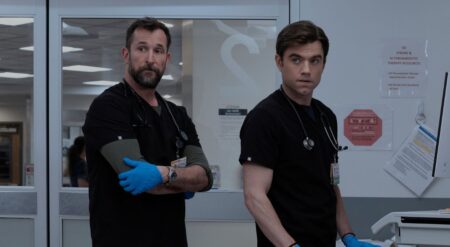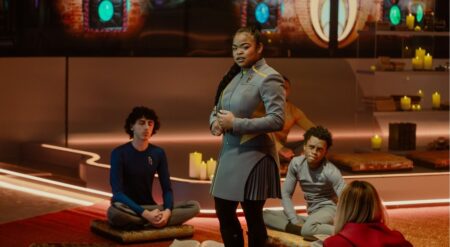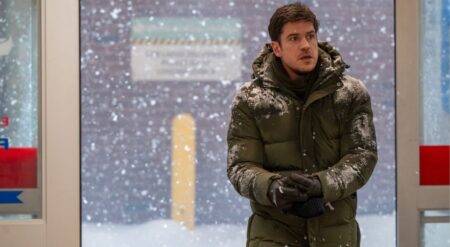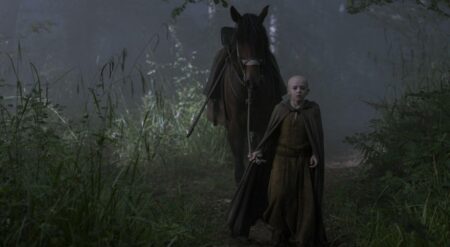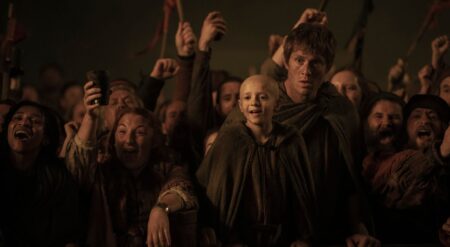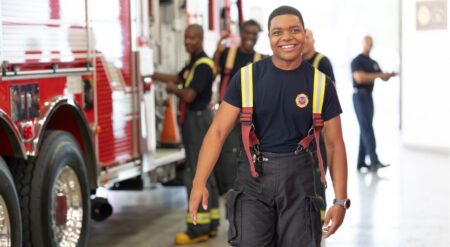There’s a fundamental worry when you see the title Better Late Than Single and realize that it’s the latest Netflix Korean dating series. The concern is that, no matter how it’s packaged, this is ultimately going to be a mean-spirited series where socially awkward individuals are paraded in front of a camera who don’t adhere to the strict Korean beauty standards for the sake of entertainment. There will be a panel of somewhat notable celebrities, main characters (the most traditionally beautiful), and a lot of locations and products to sell to the viewers. A travel ad masked as a competition to find love.
And, to an extent, Better Late Than Single doesn’t refute all of these worries. There are certainly elements of the Singles Inferno DNA present in how the contestants are framed and approached by the panelists. But what sets it apart and makes it more enjoyable viewing than expected is the fact that the contestants feel like real people.
And perhaps this is because of the genuine severity of some of their social anxieties, where they struggle to converse with the opposite sex. It also comes down to their occupations and general attitudes. They’re not so much selling an image to the camera, but finding an inner confidence and establishing who they are. The fact that not a single one of them is a model, wannabe actor, or prior Idol trainee certainly doesn’t hurt. We don’t finish Season 1 and expect any of them to end up on the panel of judges, as Dex did in Single’s Inferno.
Better Late Than Single highlights the range of insecurities in modern dating.

The concept is simple. The four panelists – made up of Kang Han-ha, Seo In-guk, Car, the Garden, and Lee Eun-ji – all choose two to three contestants to participate in the series. All of whom have never been in a relationship, are looking for love, and believe there’s something about their personalities they could improve to better their chances.
Some are relatively benign, such as a woman who realized all of her other friends are dating and doesn’t want to be left behind. Another woman has gone on a hellacious number of dates over the last few months to no avail and is beginning to wonder if her standards are too particular. Other cases, such as Noh Jae-yun, our de facto male lead, suffer from extreme social anxiety. He struggles to make eye contact and fears upsetting others, to the point of not speaking up, and needs reassurance from others that it’s okay for him to make mistakes.
Another male contestant, a defense industry researcher, is primarily concerned with his appearance and weight, and undergoes personal training to get into better shape before joining the competition. It’s here where we’re reminded of those strict beauty standards because, to any average (Western) viewer, Kim Sang-Ho looks good. Yet the series will continue to poke fun at his weight or make mention of what he’s eating throughout, something the other slimmer contestants aren’t put through.
The contestants are actually allowed to get to know one another.

After they’re all coifed, styled, put through voice training and talk therapy, they’re sent to the remote home where they’ll be living for their stay. Throughout the series, they’re paired up and sent on date nights – either in pairs or groups – to get to know one another.
It’s one of the first instances where Better Late Than Single stands out. We get the sense that the goal truly is for the contestants to mingle and get to know one another. There’s no paradise to escape to. Instead, they’re sent to coffee shops or roller skating rinks, to the beach for paddleboard yoga or BBQ, where they’re allowed to get to know one another on a more personal level. Sure, they’re initially not permitted to share their ages and professions, but by Episode 4, that’s done away with, changing their dynamics and how they converse.
Some of the contestants seem much more camera-ready despite the angle of the series. One such person is Yi Do, a 27-year-old attending Seoul National University and studying geography education. It makes sense when they announce that she’s been scouted previously for another reality series, though she didn’t qualify since it required contestants to have exes. Her polished and camera-ready attitude is at odds with someone like the popular Kang Ji-su, a 26-year-old ballet teacher who was inspired to join the series after realizing she hadn’t left her apartment in a month.
Like all Netflix reality dating series, there are definite standouts.

It’s these little asides that make certain contestants more relatable. The 28-year-old fashion marketer Lee Min-hong is delightfully open-faced and blunt, a striking contrast to so many other Korean reality dating stars. Her personality works in comparison to some of the more reserved contestants, making her unlikely friendship with Jaeyun all the sweeter.
Like so many dating series, it’s the friendships that are the most revealing about the contestants and give us the most interesting dynamics. Meanwhile, the actual romantic ones struggle. Be it from an unlikely pairing that hurts other female contestants, to crushes that go nowhere, the romance isn’t the interesting element. And, aside from the picturesque dates, it is sometimes the part that hinders the series the most, especially when certain male contestants reveal themselves to be not so worthwhile suitors.
The parts where we see Jaeyun’s personal growth and eventual ability to open up? Or learn more about the female contestants, such as Min-hong and Yi Do? Those work because the time and effort are put into exploring them.
Better Late Than Single is an entertaining but uneven reality series. With drawn-out episodes (there’s simply no need for them to be nearly 90 minutes) and some convoluted developments, there’s definite room for improvement. But if you’re looking for a series to fill the void of a particular brand of wholesome reality TV that delivers some interesting contestants and even better scenery to take in, you could do worse.
Better Late Than Single is available now on Netflix.
Better Late Than Single
-
Rating - 7/107/10
TL;DR
Better Late Than Single is an entertaining but uneven reality series. With drawn-out episodes (there’s simply no need for them to be nearly 90 minutes) and some convoluted developments, there’s definite room for improvement.


